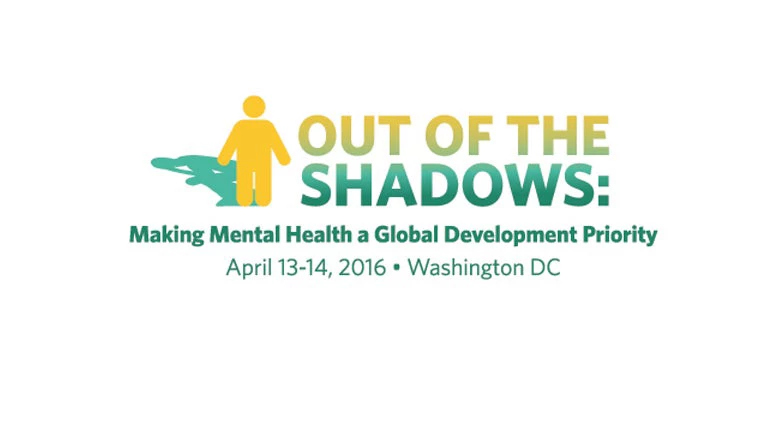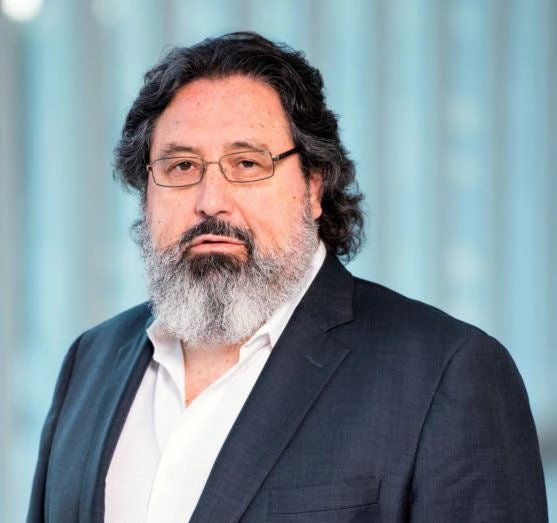
Why are mental disorders and substance use disorders treated so much differently than other health conditions? This is just one of the many questions that the World Bank Group, World Health Organization and other international partners will pose at their upcoming event -- Out of the Shadows: Making Mental Health a Global Development Priority -- on April 13th -14th , as part of the 2016 WBG/IMF Spring Meetings.
If mental health disorders are conditions of the brain, why do we treat these conditions so differently than heart conditions or cancer? And in doing so, do we realize that this approach ignores all of the evidence that shows us that mental illness is a major disability burden worldwide? If untreated, mental disorders can negatively affect management of common co-occurring diseases, such as tuberculosis and HIV, diabetes, hypertension, cardiovascular disease, and cancer.
For all of these reasons and many more, the WBG-WHO are aiming to put the mental health agenda where it belongs -- at the center of global health and development priorities and remove all disparities.
In his sobering and deeply touching memoir, A Common Struggle, former U.S. Congressman Patrick J. Kennedy, shares his personal struggle with mental disorders and substance abuse and unpacks some of the issues surrounding mental health.
In the United States, as well as in countries such as Chile, Colombia and Ghana, where they are trying to push for equality for mental illnesses and addiction treatment, a common barrier to overcome is preexisting conditions clauses that deny health insurance coverage. And even if this hurdle is overcome, explained Congressman Kennedy, who will deliver a keynote at the event, the next big issue is to determine what is covered, funded, and enforced at the provider level. And this leads to a whole host of additional questions, such as:
- Would coverage be offered for common mental illnesses such as depression and anxiety disorders, or just for severe mental illnesses such as schizophrenia, bipolar disorder, and disabling clinical depression?
- Would addictions be covered?
- How to select the menu of evidence-based treatments to be offered by service providers at different levels of care, as is commonly done for other health conditions at the community level and on ambulatory clinics, local hospitals or specialized treatment centers?
- We know that services for mental disorders depend heavily on adequate number of trained health personnel; how do we bridge the gap in their availability?
- How about drugs, are they going to be brand name or equally effective generics? Who decides and on what basis?
- Would there be a mandate for all public and private insurance plans to cover mental health?
- And how are these services going to be funded and reimbursed, particularly not to perpetuate medical discrimination in the subtle way of high deductibles, copayments, and lifetime limitations in coverage under health insurance arrangements?
- What strategies can be used to integrate mental health care as part of services delivery platforms that focus on the patient as a whole rather than an aggregation of separate diseases?
- And even if all these policy and service delivery changes are adopted, would affected persons who need mental healthcare and their families defy the stigma of being seen as “mental ill”” and get services and adhere to prescribed medication and psychotherapies?
- What can be done to create facilitating workplace environments that help affected people overcome fear of losing a job or health insurance coverage if one were to disclose a mental health affliction and seek mental healthcare when needed?
We already have the evidence-based medical treatments and support therapies that can help alleviate the silent suffering for so many. Political will and commitment to sustainable funding, improved and scaled up service provision as a right of the population is required. And besides the human toll, let’s not forget that the social cost of inaction is staggeringly high as measured in terms of broken families, less cohesive and inclusive communities, labor supply losses, high rates of unemployment among mentally-ill persons, disability costs, absenteeism and reduced productivity at work from unattended depression and anxiety disorders.
Let’s remain optimistic that recent attention and interest on this issue will lead to increased commitments to implementing a global, multisectoral effort to scale up mental health services in primary care and community settings.
Related
For detailed information on WBG/WHO global mental health event
Join us via web streaming April 13, 2016



Join the Conversation